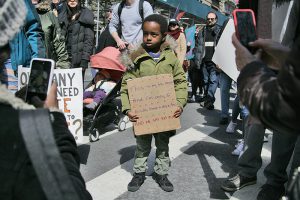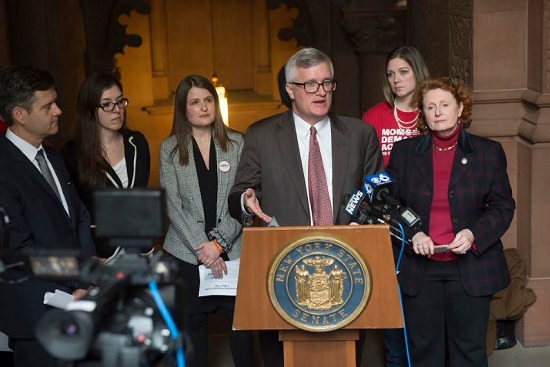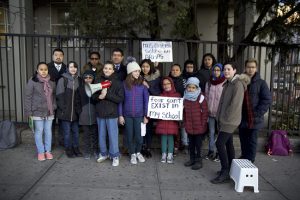
Bill to keep guns out of the hands of persons deemed dangerous shot down by State Senate Republicans

Early Friday morning, New York state Senate Republicans — once again — blocked a bill that would keep guns out of the hands of violence-prone people.
The “Extreme Risk Protection Orders” (ERPO) bill would have allowed the use of protective orders to temporarily disarm individuals deemed to be a harm to themselves or to others.
Highlighted by the tragic shooting at Marjory Stoneman Douglas High School in Parkland, Florida, the bill received the backing of gun violence groups, law enforcement officials — including the District Attorneys of all five New York City boroughs — mental health organizations and, recently, the general backing of Gov. Andrew Cuomo.
The ERPO bill was originally introduced by two Brooklyn officials — Assemblymember Jo Anne Simon and Sen. Brian Kavanagh — along with state Sen. Brad Hoylman (Manhattan) in January. It passed the Assembly but was rejected by the Senate last month.
In a last-ditch effort, Kavanagh, Sen. Brad Hoylman and their colleagues in the Democratic Conference attempted to reintroduce the provision late Thursday/early Friday, before the March 30 deadline, as an amendment to S7505C, a larger budget bill containing a number of provisions related to public protection and general government.
The amendment, however — along with other reform amendments sought by Democrats — was voted down by the Senate Republicans. At press time, an exact number of votes against the amendment was unavailable.
Kavanagh and Hoylman said in a joint statement on Friday, “As we have several times this session, we proposed commonsense laws that will keep guns out of the wrong hands. But once again, the Senate Majority blocked this legislation.”
The bill had 28 Senate sponsors, all Democrats.
The senators pointed out that similar ERPO bills have been approved in six other states, from Connecticut to Indiana to California, and most recently, Florida.
“By voting against this provision, the Senate Majority didn’t just vote against a commonsense bill that can save lives. And they didn’t just vote against the million Americans, or hundreds of thousands of New Yorkers who marched last weekend,” the senators said. “They voted against the District Attorneys and other law enforcement officials who are sworn to protect our communities. They voted against the mental health organizations who work to keep New Yorkers safe and healthy every day. And they voted against the frontline healthcare workers who deal with the effects of gun violence on a daily basis.”
Kavanagh and Hoylman said they would “continue to work tirelessly until this bill is enacted into law.”
How ERPO Would Work
Nikolas Cruz, the teenager arrested and charged in the Parkland shooting, had numerous run-ins with police, left threatening comments on social media and had a history of self-harm and violence. Despite these warning signs, however, there is currently no law that that would make him ineligible to purchase guns.
ERPO (S7133/A8976) would allow family members or law enforcement officials in New York state to petition a state court to issue an order preventing the accused person from buying or possessing guns, even before any actual crime is committed.
If the court agrees the accused is likely to harm themselves or others, they would be required to surrender their guns, and police would be sent to search their home or apartment in order to confiscate their firearms.
The complaining family member or law enforcement officials would have to provide clear documentation to back up their claims, according to the language of the bill. This could include a threat or the use of physical force, a violation of an order of protection, weapons offenses or charges, the reckless display of a firearm or evidence of alcohol or drug abuse.
Sponsors say the language of the bill protects people who are unfairly accused. The order would last for one year, and the accused person would have one opportunity during that year to present evidence to the court as to why the order should be lifted
The other amendments shot down by Senate Republicans included bills to enact the Child Victims Act, reform the criminal justice system, modernize New York’s elections, and close the LLC Loophole.
Because the amendments were defeated, Kavanagh and Hoylman voted against the public protection and general government portion of the budget.
Leave a Comment
Leave a Comment



